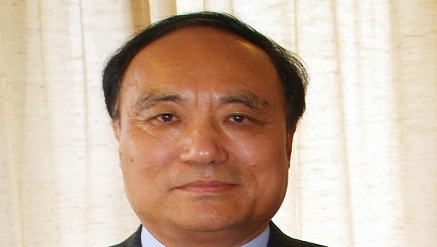Telecom
ITU Statistics Confirm ICT Revolution of Past 15 Years

New figures released by ITU indicate that over the past 15 years, information and communication technologies (ICTs) have grown in an unprecedented way, providing huge opportunities for social and economic development.
The new figures track ICT progress and show gaps in connectivity since the year 2000, when world leaders established the United Nations Millennium Development Goals (MDGs).
Today, there are more than 7 billion mobile subscriptions worldwide, up from 738 million in 2000. Globally, 3.2 billion people are using the Internet, of which two billion live in developing countries.
“These new figures not only show the rapid technological progress made to date, but also help us identify those being left behind in the fast-evolving digital economy, as well as the areas where ICT investment is needed most,” said ITU Secretary-General Houlin Zhao, at the press conference to launch the report today at the 2015 WSIS Forum in Geneva.
“ICTs will play an even more significant role in the post-2015 era and in achieving future Sustainable Development Goals as the world moves faster and faster towards a digital society,” said Mr Brahima Sanou, the Director of the ITU’s Telecommunication Development Bureau.
“Our mission is to connect everyone and to create a truly inclusive information society, for which we need comparable and high-quality data and statistics to measure progress.”
Internet user penetration increased seven-fold since 2000
Between 2000 and 2015, Internet penetration has increased almost seven-fold from 6.5 to 43 per cent of the global population.
The proportion of households with Internet access at home advanced from 18 per cent in 2005 to 46 per cent in 2015.
ITU figures also indicate that four billion people in the developing world remain offline. Off the nearly one billion people living in the Least Developing Countries (LDCs), 851 million do not use the Internet.
3G mobile-broadband coverage rapidly extending
Mobile broadband is the most dynamic market segment, with mobile-broadband penetration globally reaching 47 per cent in 2015, a value that increased 12-fold since 2007. In 2015, 69 per cent of the global population will be covered by 3G mobile broadband, up from 45 per cent in 2011.
There is also a rapid extension of 3G mobile broadband into rural areas, and ITU estimates that 29 per cent of the 3.4 billion people worldwide living in rural areas will be covered by 3G mobile broadband by the end of 2015.
Among the four billion people living in urban areas, 89 per cent will have access to 3G mobile broadband.
Fixed-broadband uptake growing at a slower pace
Fixed-broadband uptake is growing at a slower pace with a seven per cent annual increase over the past three years.
While the prices of fixed-broadband services dropped sharply between 2008 and 2011 in developing countries, they have been stagnating since then and even increased slightly in LDCs.
Broadband now affordable in many countries
The figures indicate that broadband is now affordable in 111 countries, with the cost of a basic (fixed or mobile) broadband plan corresponding to less than five per cent of Gross National Income (GNI) per capita, thus meeting the target set by the Broadband Commission for Digital Development.
The global average cost of a basic fixed-broadband plan, as measured in PPP$ (or purchasing power parity $), is 1.7 times higher than the average cost of a comparable mobile-broadband plan.
Telecom
Toriola, MTN Nigeria CEO again Defends Tariff Hikes amidst Backlash

Karl Toriola, chief executive, MTN Nigeria has defended recent tariff hikes by mobile network operators, stating they are essential for the “survival” of the telecoms industry in Nigeria, despite significant criticism.

Karl Toriola, chief executive, MTN Nigeria
The Nigerian Communications Commission (NCC) granted mobile network operators permission to raise tariffs by up to 50% last month, a change reportedly implemented on 11 February.
The increase has sparked public outrage, as mobile connectivity has become a vital necessity in daily life across the West African nation.
In an interview with Developing Telecoms, Toriola pushed back against criticism that the price surge was excessive, arguing that tariffs should have increased by approximately 300% to reflect the naira’s sharp devaluation and the country’s soaring inflation.
Addressing the impact of currency devaluation, Toriola emphasised that MTN purchases network equipment and software in US dollars, a process that has become significantly more expensive. With the naira’s decline, operators are now receiving three times fewer dollars than they did in 2023, making operations more challenging.
In February 2023, businesses could exchange 460 naira for one US dollar, but the currency has since devalued sharply. At the time of writing, a single dollar was worth 1,510 naira.
As Nigeria grapples with the sharp devaluation, MTN has been severely affected.
The company was technically bankrupt in 2023 as its liabilities surpassed its assets—a deeply concerning issue for the wider MTN Group, as Nigeria remains one of its highest revenue-generating markets.
“Because of these factors, we’ve seen our costs rise dramatically. The cost of leasing tower space and supplying energy to cell sites increased by 120% in the first three quarters of 2024. So, in comparison, a 50% tariff increase is not that high,” said Toriola.
Telecom
IoT West Africa & Data Centre Cloud Expo 2025 Set to Boost Africa’s $180Bn Digital Economy

The IoT West Africa & Data Centre Cloud Expo 2025, co-located with Power and Water Nigeria, is poised to play a crucial role in boosting Africa’s digital economy, projected to reach $180 billion by 2025 and contribute 5.2% to the continent’s GDP.

Shitij Taneja, Vertex Next Managing Director
Organized by Vertex Next, the three-day event will take place from May 13th to 15th, 2025, at the Balmoral Convention Centre, Federal Palace Hotel, Lagos. It will convene government leaders, industry experts, investors, and innovators to explore the latest advancements in IoT, AI, cloud computing, digital infrastructure, and energy solutions.
In a statement made available to journalists in Lagos, Vertex Next Managing Director, Shitij Taneja, stated that this influential event will significantly contribute to the continent’s digital economic growth.
He assured that the expo will feature a comprehensive conference program focused on the transformative power of IoT, AI, and digital technologies across various African industries.
According to Taneja, discussions will center on how these technologies drive economic expansion, improve connectivity, and increase efficiency in key sectors like telecom, energy, finance, and e-commerce. Government officials and business leaders are also expected to collaborate on strategies for scaling digital infrastructure and leveraging data for innovation and sustainable development.
As demand for secure, efficient, and scalable digital infrastructure surges, Africa’s data center market is expected to grow at a CAGR of 12% through 2030, reaching a valuation of over $5 billion.
The expo will feature high-level discussions on critical infrastructure development, investment opportunities, cybersecurity, and AI-driven data center expansion. Thought leaders from global cloud and data center giants will share insights into building future-ready facilities that power industries and drive economic progress.
With Africa’s power sector undergoing transformation, discussions will focus on smart grids, energy storage, and sustainable power solutions to support the continent’s growing digital economy.
The African Development Bank estimates that investment in energy and utilities must increase to $70 billion annually to meet rising demand. Industry leaders will explore the role of IoT and AI in optimizing utilities, managing resources efficiently, and developing smart, connected cities.
The rise of digital banking, fintech, and e-commerce is reshaping consumer experiences and financial transactions across Africa. The fintech sector alone attracted over $3 billion in investments in 2023, and e-commerce is projected to exceed $75 billion in value by 2028.
This expo will highlight how automation, AI, and IoT are creating secure, seamless, and scalable financial solutions, ensuring that businesses stay ahead in the fast-paced digital landscape.
Taneja disclosed that the IoT West Africa & Data Centre Cloud Expo 2025 aligns with Nigeria’s National Digital Economy Policy and Strategy (NDEPS) and Agenda 2063 of the African Union, both of which prioritize technological innovation, digital infrastructure, and economic diversification.
By bringing together policymakers and industry stakeholders, the event aims to support regulatory frameworks for digital transformation, foster collaboration between the public and private sectors, encourage foreign direct investment (FDI) in ICT and energy, and accelerate initiatives such as Smart Cities and e-Governance.
Telecom
NITDA Pledges to Foster Innovation with Cloud Infrastructure and AI Applications

National Information Technology Development Agency (NITDA) has reaffirmed its dedication to fostering an innovative ecosystem that balances regulation with industry growth. The agency is investing in cloud infrastructure, data classification, and AI applications to establish Nigeria as a leading digital hub in Africa.

Kashifu Inuwa, NITDA’s Director General, emphasized this commitment while speaking at the Africa Hyperscalers Digital Infrastructure Outlook 2025. The event gathered industry experts to explore Africa’s role in the expanding global AI-driven infrastructure boom.
In his remarks, Inuwa highlighted NITDA’s dual regulatory framework: rule-based regulation, involving strict compliance guidelines, and non-rule-based regulation, which allows for industry-led innovation with established benchmarks.
“Before we regulate anything, we need to be aware of the landscape, we need to be intelligent, we need to have data and make sense out of that data, we need to be dynamic because technology is fast-changing and we need to develop that agility within the regulatory framework,” Inuwa stated.
He also discussed the Cloud First Policy, introduced in 2019 to discourage excessive reliance on physical data centres. This policy encourages government agencies and private businesses to leverage cloud computing and digital solutions. Initially, businesses were granted waivers to use public cloud infrastructure, but NITDA is now pushing for local data centres to enhance their capabilities.
A major milestone for NITDA was its successful engagement with global hyperscaler providers, including Google Cloud, which pledged to collaborate with local data centres to drive cloud adoption and establish a hyperscaler data centre in Nigeria. This follows a meeting between Google CEO Sundar Pichai and President Bola Ahmed Tinubu in Paris, where the President shared his transformative ambition for Nigeria.
To further drive cloud adoption, NITDA is finalizing a framework that will mandate data classification, ensuring that certain data categories remain within Nigeria. This move is expected to attract more cloud service providers and bolster the country’s digital sovereignty.
Emphasizing the importance of AI applications, Inuwa disclosed that NITDA is prioritizing AI to enhance governance, regulation, and service delivery. He asserted that AI can revolutionize governance and business operations by automating processes, enhancing regulatory efficiency, and developing knowledge management systems.
Dr. Nadu Denloye, Co-founder of Telnet Nigeria Limited, also spoke at the event, highlighting Africa’s remarkable digital transformation driven by connectivity advancements, cloud adoption, data centres, AI, and a growing digital-native population. She expressed confidence in crafting solutions to drive Africa’s digital growth.
Other notable panelists included Dr. Ayaotunde Coker, CEO Open Access Data Centres and Chairman of the Africa Data Centres Association; Johnson AgboGbua, CEO of Kasi Cloud; Obinna Isiadinso, Data Centres Global Sector Lead at International Finance Corporation; Kazeem Oladepo, Chief Operating Officer at IHS; and Abibat Kazeem, Commercial Director at Bayobab.
This commitment by NITDA underlines its dedication to advancing Nigeria’s position as a digital leader in Africa through innovative solutions and strategic regulations.

 E-Financial2 days ago
E-Financial2 days agoSERAP Gives CBN 48-Hour Ultimatum to Withdraw ATM Fee Hike

 E-Financial2 days ago
E-Financial2 days agoFG Seeks Fresh $300m Loan from World Bank for Health Security

 General News2 days ago
General News2 days agoFG Drops Merger of NCAA, NAMA

 News2 days ago
News2 days agoBinance Chief Insists Some FG Officials, Reps Demand $150m Bribe

 News2 days ago
News2 days agoinDrive Unveils Cashless Bank Transfer Feature in Nigeria

 E-Financial2 days ago
E-Financial2 days agoCardinalStone Acquires Radix Pension Managers

 Telecom2 days ago
Telecom2 days agoNITDA Pledges to Foster Innovation with Cloud Infrastructure and AI Applications

 Telecom16 hours ago
Telecom16 hours agoToriola, MTN Nigeria CEO again Defends Tariff Hikes amidst Backlash


























